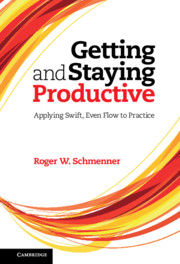9 - Resolving the paradox
from Part II - Application
Published online by Cambridge University Press: 05 April 2012
Summary
Why have we not done a better job of managing productivity? What should we do to create a meaningful breakthrough?
THE PRODUCTIVITY PARADOX
In an influential article in the Harvard Business Review, Professor Wickham Skinner, generally recognized as the father of manufacturing strategy, reacted to what he was seeing as American companies were trying to beat back the Japanese industrial onslaught that started in the late 1970s and gathered speed through the 1980s. He titled the article, “The Productivity Paradox.” In the article, Skinner berated companies for pursuing a narrow policy toward productivity. He claimed that the pursuit of lower costs was leaving companies further and further behind competitively. He chided the managers of these companies for concentrating on direct labor, on efficiency measures of factory workers, and for thinking that conventional cost cutting was the thing that they should be doing. Witness the following paragraph:
The emphasis on direct costs, which attends the productivity focus, leads a company to use management controls that focus on the wrong targets. Inevitably, these controls key on direct labor: overhead is allocated by direct labor; variances from standards are calculated from direct labor. Performance in customer service, delivery, lead times, quality, and asset turns are secondary. The reward system based on such controls drives behavior toward simplistic goals that represent only a small fraction of total costs while the real costs lie in overhead and purchased materials.
Information
- Type
- Chapter
- Information
- Getting and Staying ProductiveApplying Swift, Even Flow to Practice, pp. 247 - 263Publisher: Cambridge University PressPrint publication year: 2012
